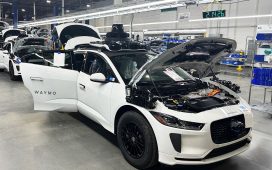The Future of Driving: How Predictive Vehicle Technology is Revolutionizing Transportation
The future of driving is set to be revolutionized by predictive vehicle technology, a rapidly evolving field that is transforming the transportation landscape. This innovative technology, which uses data, artificial intelligence, and machine learning to predict and respond to potential issues before they occur, is poised to significantly enhance vehicle safety, efficiency, and performance.
Predictive vehicle technology is a game-changer in the automotive industry. It leverages vast amounts of data collected from various sensors embedded in vehicles, such as GPS, cameras, and radar. This data is then processed using advanced algorithms and machine learning techniques to predict potential issues and respond accordingly. For instance, predictive maintenance can alert drivers to potential mechanical problems before they become serious, thereby reducing the risk of breakdowns and accidents.
Moreover, predictive technology is not just about preventing mechanical issues. It also plays a crucial role in enhancing vehicle safety. By analyzing driving patterns and behaviors, predictive technology can anticipate potential risks and hazards, enabling the vehicle to take preventive measures. For instance, if the system detects that the driver is drowsy or distracted, it can issue alerts or even take control of the vehicle to prevent accidents.
In addition to safety, predictive technology also promises to improve fuel efficiency and reduce emissions. By analyzing driving patterns and traffic conditions, predictive systems can optimize fuel consumption and suggest the most efficient routes. This not only saves money for drivers but also contributes to environmental sustainability.
Furthermore, predictive technology is set to play a pivotal role in the development of autonomous vehicles. Self-driving cars rely heavily on predictive technology to navigate roads safely and efficiently. By continuously analyzing data from various sensors and external sources, such as traffic and weather conditions, autonomous vehicles can make informed decisions and react to unexpected situations.
However, the widespread adoption of predictive vehicle technology is not without challenges. Data privacy and security are major concerns, as the technology relies on collecting and analyzing vast amounts of data. Ensuring the accuracy and reliability of predictions is another challenge, as false positives or negatives could have serious consequences. Moreover, the technology requires significant computational power and sophisticated algorithms, which could be costly.
Despite these challenges, the potential benefits of predictive vehicle technology are immense. It promises to make driving safer, more efficient, and more enjoyable. As the technology continues to evolve and mature, we can expect to see more vehicles equipped with predictive features on our roads.
In conclusion, predictive vehicle technology is revolutionizing the future of driving. It is transforming the way we think about vehicle safety, efficiency, and performance. While there are challenges to overcome, the potential benefits are too significant to ignore. As we move towards a future where vehicles are increasingly connected and autonomous, predictive technology will undoubtedly play a crucial role. The future of driving is here, and it is predictive.









